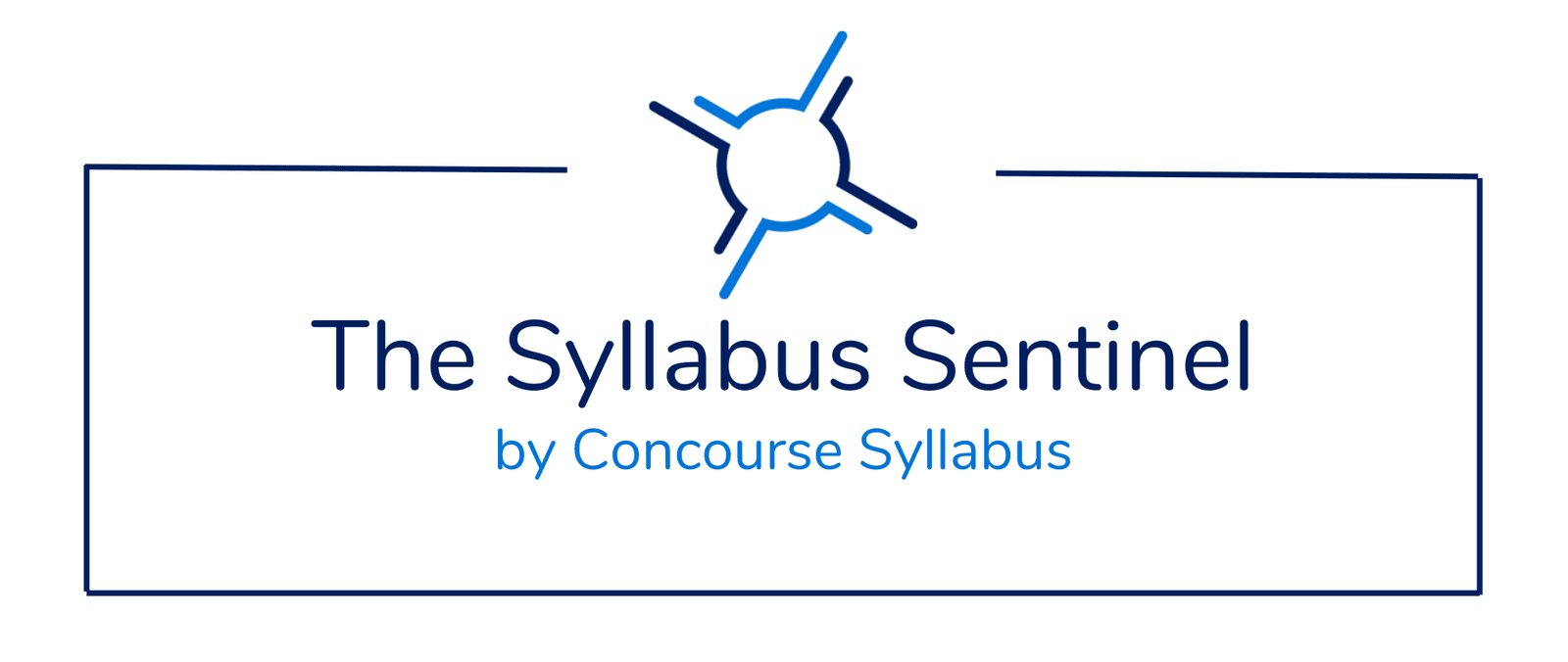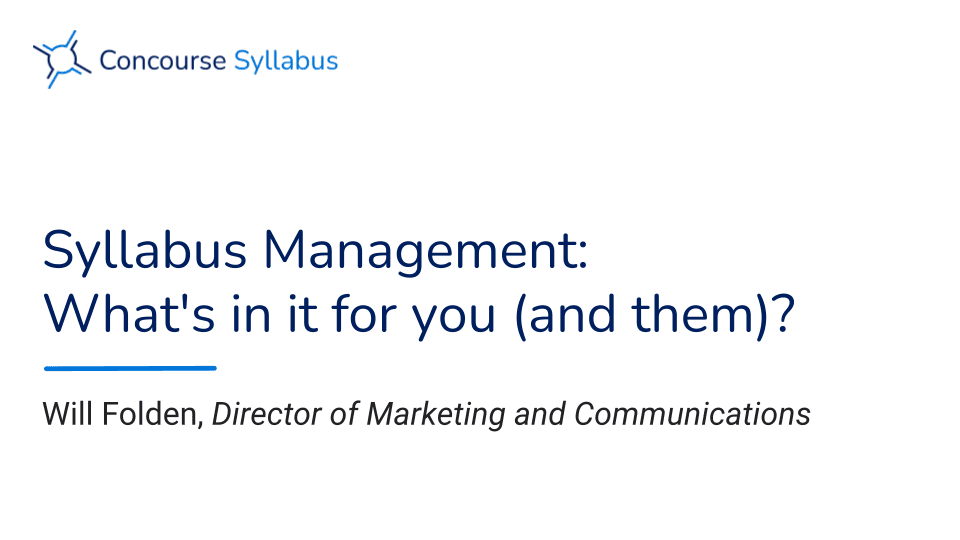November 2023
Food in class. Academic honesty. Late assignments. One of the core purposes of a syllabus is communicating policies to students, whether they be institutional, unique to the class, or somewhere in between. And far from the static, carved in stone rules they might seem to be from the outside, policies are in constant need of adjustments, additions, and revisions. In this month’s Sentinel, we look at some of the conversations about policy going on in higher education right now.
In This Edition:
- The Artificial Elephant in the Room
- One Topic. Diverse Options.
- Credit Check
- A Shameless Plug
The Artificial Elephant in the Room
Not since the COVID-19 epidemic has a single topic dominated the minds of those in higher education the way artificial intelligence has in 2023. The improvements to and growth in availability of large language models like ChatGPT and other generative AI technologies has sparked countless related but divergent conversations about academic honesty, new (and possibly dying) career fields, and even the prediction of the end of the college essay. Conference agendas have been dominated by keynotes, presentations, and workshops dedicated to discussing what to do about the profusion of opportunities and dangers that come with this developing technology. What’s certain now is that we can’t ignore it any longer. The Chronicle of Higher Education recently published an advice article aptly titled, “Should You Add an AI Policy to Your Syllabus?” (spoiler alert: the answer is almost certainly yes). After quickly answering the question, the author provides an abundance of advice and resources for helping you develop a suitable policy. It’s a great starting point for creating or revising an AI policy for your course or your institution.
One Topic. Diverse Opinions.
Diversity, Equity, and Inclusion offices and policies have become a common feature at many institutions of higher education. Even organizations that don’t have an internal DEI office have invested in workshops and consultations on the topic. This year, however, has seen a wide division in perspectives on DEI. At one extreme, some states and systems have made DEI statements mandatory for all institutions and instructors, or tied evaluations to demonstrated commitment to DEI. At the other, five states have now banned DEI statements or the use of state funds for DEI offices and efforts on college campuses, and many others have proposed similar bills. Both groups claim that their efforts are about protecting students, though what they see as dangerous of course differs significantly. U.S. News and World Report, a publication best known in higher ed for its annual ranking of colleges and universities, provides a basic primer on the current state of DEI initiatives across the country. Whichever way your state or system is moving on DEI, it’s likely that it will require an examination of your existing policies in the near future.
Credit Check
Credit Check
While institutions wrestle with questions that impact all students, faculty members have to make careful decisions about what’s best for the students in their specific courses. From readings and assignments to late work and grading criteria, professors and instructors mold their own policies regarding what to allow and require in their classroom, be it physical or virtual. A perennial debate centers on the concept of extra credit. Many instructors and students see extra credit as an opportunity for remediation or a way to recover from a bad day (or week). Others, like David Galef, would rather students “work more on the assignments [they] do have” instead of diverting efforts toward extra credit work. His recounting of his debate with students in an Inside Higher Ed article about extra credit highlights the diversity of viewpoints on the topic, and may help educators navigate the creation and implementation of their own policies.
A Shameless Plug
A Shameless Plug
Higher ed policy is the ultimate example of the idea that the only constant is change. We at Concourse believe that since change is inevitable, the best thing we can do is make change easier, more efficient, and less time consuming for our users. From tiered templates to our familiar editing interface and our item-based syllabus structure, when the next major shift in the higher ed landscape surfaces, you’ll be ready to address it with Concourse Syllabus. Check out our features page to learn more about the top five ways Concourse is designed to make life easier for you and everyone at your institution. You can also check out our most recent webinar, where we show you how Concourse positively impacts everyone at your institution.






